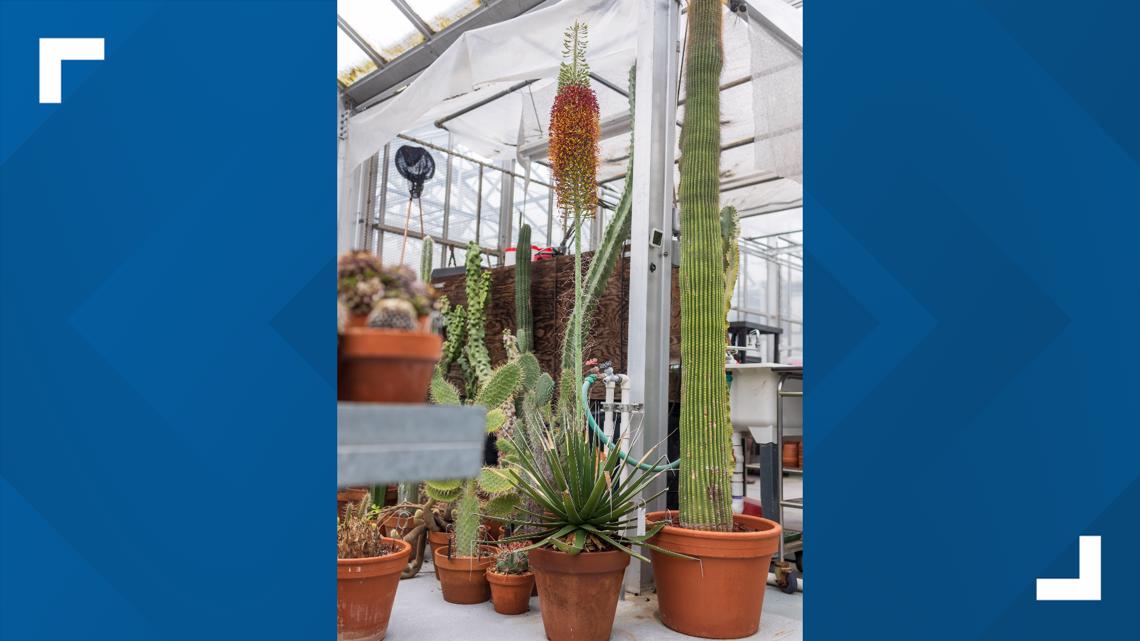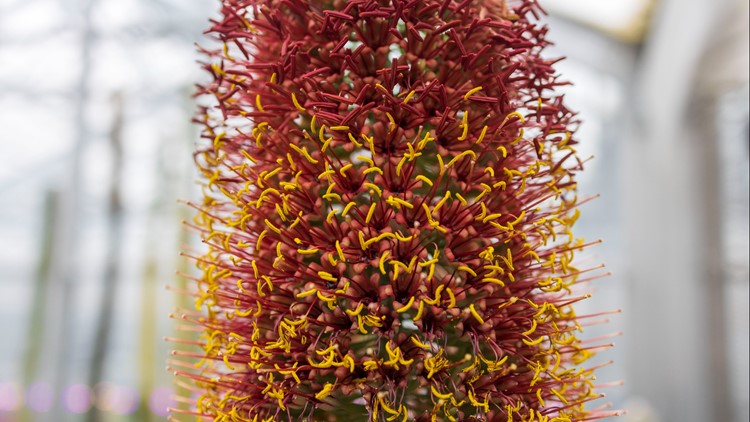ST. LOUIS — A critically endangered plant is in bloom at the Missouri Botanical Garden, and it could play an important role in the survival of its species.
MoBOT posted photos to Twitter Tuesday of an Agave pelona currently in bloom at the botanical garden's greenhouses. The plant has been alive since the 80s and staff noticed in late January that it was sending up a flower stalk, according to MoBOT's Kristina DeYong. The flowers opened on Feb. 15.
Agave pelona only grows on a mountain range in Sonora, Mexico, amid the Sonoran desert. The mountain range is at high-altitude and has the cooler temperatures the plant needs. But surrounded by hot desert, there is nowhere for it to spread.
That's part of what causes the pressure on its population, DeYong said.
"With very few Agave pelona left in the world, the species' survival depends on the remaining specimens' ability to produce seed," MoBOT said in its Twitter thread about the plant.
But a chance at new life also means death for the plant. The Agave pelona is monocarpic, meaning it will die after it blooms.
Garden horticulturists are making the most of the opportunity, hand-pollinating the agave in an attempt to produce seed.
"The race to protect the future of the Agave pelona is on," MoBOT said.


The plants typically bloom every 20 years. MoBOT also has a second, even older Agave pelona, which has been around since the 70s and may also bloom in the next few years. They believe the delay in blooming for both plants could be because they are in a greenhouse.
The agaves can't currently be viewed by the public, but that is expected to change soon.
"Right now, the Agave pelona lives behind the scenes in our arid greenhouse because we do not currently have a public conservatory available that would suit its needs," MoBOT shared in a statement. "However, as a part of the Jack C. Taylor Visitor Center project, renovations are underway on the Shoenberg Temperate House and Linnean House, along with the construction of the brand-new Emerson Conservatory. We are excited that these spaces will allow us to share much more of our collection, including arid plants like the Agave pelona, with the public in the near future!"



